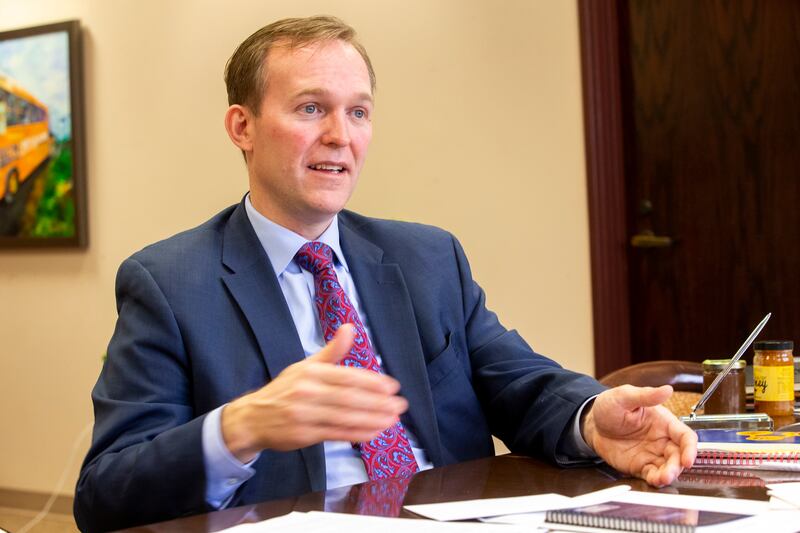I describe my experience with the coronavirus as the sickest I’ve ever been in my life. Eight days on supplemental oxygen in a Utah hospital taught me how fast and hard this virus strikes. I am young, healthy, active and not suffering from any underlying conditions. From my first mild, cold-like systems — even before I tested positive for the coronavirus — I remained isolated in my home, heeding the advice of medical experts.
I’m grateful for the hospital staff — the doctors, nurses and others — who knew what to do for me and helped me get well. My medical caregivers were well-equipped. But I saw how that without personal protective equipment, such as masks, gowns and face shields, hospital staff would be most at risk for becoming infected and exposing their own families to the virus. I’m blessed to be among those who did recover and my heart aches for the families and friends of those who have died.
I’m back at work holding virtual meetings with Utahns in government, health care, small business, education, nonprofit communities and everyday folks. I see and hear how crucial it is to provide accurate information so everyone can act on it appropriately. The Centers for Disease Control and Prevention, the Utah Health Department, Gov. Gary Herbert, county health departments and local mayors are holding valuable, frequent, direct conversations with the public, providing facts about the virus, the risks, mitigation behaviors and the timeline Utahns can expect.
In a country that has become somewhat cynical about the people’s ability to make good choices, I have faith in our community. Research shows that if people are given the right information, they can make reasonable assessments. That is proving true now as people see images of hospitals, medical experts and scientists practicing social distancing and donning protective equipment. Precise messages provide the public with information needed to evaluate risk and act accordingly.
The same holds true for providing accurate information about the economic impact relief measures passed by Congress. When my office began receiving questions from local financial institutions and businesses about the Small Business Administration’s Paycheck Protection Program, I realized there were significant gaps in the SBA’s instructions for how businesses and employees access this economic lifeline. I told the leaders of the responsible federal agencies — the Treasury Department and the SBA — that they must immediately fill the information gaps. Hundreds of billions of dollars allocated to a program isn’t much good if the money is sitting in Washington, instead of flowing through community financial institutions to small business owners.
My doctors tell me that I am virus free, but it’s still my responsibility and yours to relentlessly protect others. We must follow the guidelines of hand-washing, disinfecting surfaces and social distancing. Those personal behaviors will help Utah “flatten the curve” or the rate of increase in the number of cases each day and how sharply that rate goes up.
We want to keep the peak low. The models project that peak is still a couple of weeks away here in Utah; tragically, the experts tell us more deaths will occur. Fewer deaths will result over the weeks and months ahead if we can reduce the spread of the virus and buy time for our hospitals and medical providers to prepare for sick patients and deploy lifesaving medical equipment.
After we’ve successfully managed the public health emergency, we must work together — government, private sector, community and faith leaders and hard-working Utah families to put our economy back together. We already see evidence of Utah families struggling with financial hardship, something our state hasn’t seen broadly, thanks to years of economic prosperity. We will recover more quickly if leaders communicate information in the best way possible to give people what they need to make good decisions.
U.S. Rep Ben McAdams represents Utah’s 4th Congressional District.

